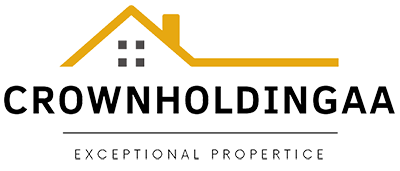Real estate is a complex and dynamic industry that plays a crucial role in the economy. Whether you are a buyer, seller, investor, or simply curious about the market, understanding the basics of real estate is essential. In this guide, we will explore the key concepts, processes, and factors that shape the real estate market.
What is Real Estate?
Real estate refers to land, buildings, and any improvements or structures attached to the land. It encompasses residential, commercial, and industrial properties. Real estate is a tangible asset that holds value and can generate income through rent or sale.
The Real Estate Market
The real estate market is the marketplace where buyers and sellers interact to buy, sell, or rent properties. It is influenced by various factors, including supply and demand, economic conditions, interest rates, and government policies. The market can fluctuate, with periods of growth and decline.
Types of Real Estate
There are several types of real estate, each serving different purposes:
- Residential Real Estate: This includes single-family homes, condominiums, townhouses, and apartment buildings.
- Commercial Real Estate: This includes office buildings, retail spaces, hotels, and warehouses.
- Industrial Real Estate: This includes manufacturing facilities, distribution centers, and storage units.
- Land: This refers to undeveloped or vacant land that can be used for various purposes.
The Buying and Selling Process
Buying or selling a property involves several steps:
- Research and Planning: Determine your needs, budget, and desired location. Research the market and seek professional advice.
- Property Search: Look for properties that meet your criteria. Attend open houses, viewings, and consider hiring a real estate agent.
- Negotiation and Offer: Make an offer on a property and negotiate the terms with the seller. This may involve counteroffers and inspections.
- Contract and Closing: Once the offer is accepted, a purchase agreement is drawn up. The closing process includes inspections, appraisals, financing, and legal documentation.
- Transfer of Ownership: The property is transferred from the seller to the buyer, and the transaction is completed.
Investing in Real Estate
Real estate can be a profitable investment strategy. Some common investment options include:
- Rental Properties: Buying properties to rent out and generate rental income.
- Fix and Flip: Purchasing properties in need of renovation, improving them, and selling them for a profit.
- Real Estate Investment Trusts (REITs): Investing in publicly traded companies that own and manage income-generating real estate.
- Real Estate Crowdfunding: Pooling funds with other investors to invest in real estate projects.
Real Estate Professionals
Various professionals play a role in the real estate industry:
- Real Estate Agents: Licensed professionals who assist buyers, sellers, and investors in the buying and selling process.
- Real Estate Brokers: Experienced agents who have additional training and can oversee other agents.
- Real Estate Appraisers: Professionals who determine the value of a property.
- Mortgage Brokers: Experts who help buyers find suitable mortgage loans.
- Property Managers: Individuals or companies who manage rental properties on behalf of owners.
Conclusion
Real estate is a vast and multifaceted industry that offers numerous opportunities and challenges. Understanding the basics of real estate can empower you to make informed decisions, whether you are buying, selling, investing, or simply navigating the market. By familiarizing yourself with the key concepts and processes, you can navigate the real estate landscape with confidence.

